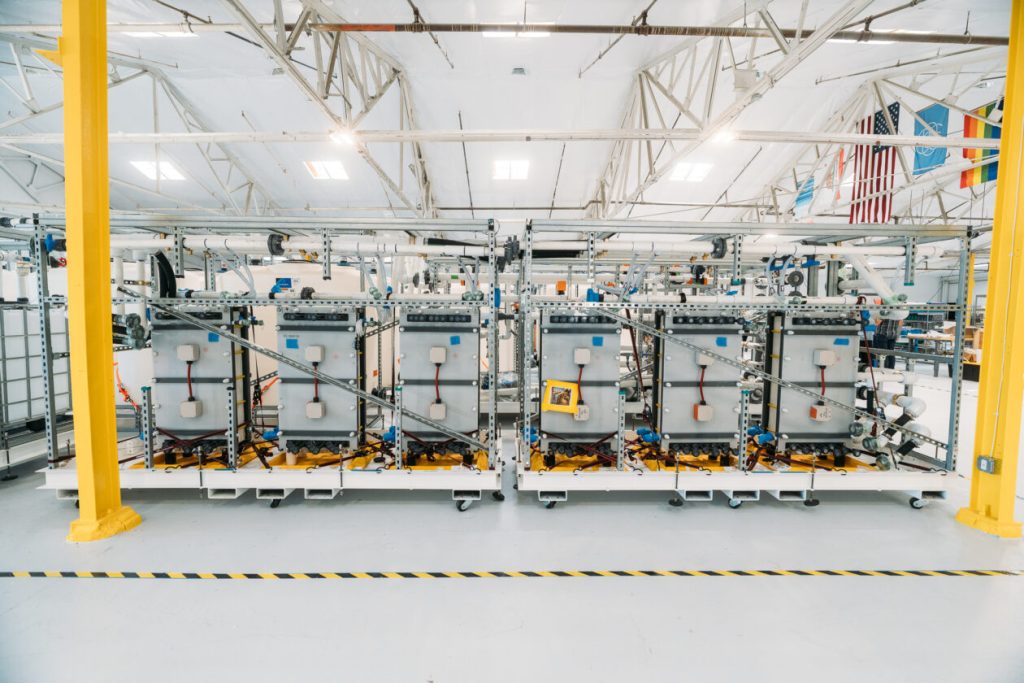Ebb Carbon, a marine carbon removal startup based in South San Francisco, has partnered with Microsoft to potentially remove up to 350,000 tons of CO2 from seawater over the next decade. The technology used by Ebb Carbon, known as ocean alkalinity enhancement, creates basic water that can capture carbon from the ocean and store it, helping combat ocean acidification. The initial agreement between Ebb Carbon and Microsoft starts with 1,333 tons of removal, with the option for Microsoft to purchase more removal credits in the future. The terms of the deal were not disclosed.
Ebb Carbon is utilizing a technology that has been used by winemakers and in sewage plants, which can now be applied to the ocean to facilitate carbon removal. The company is collaborating with the Department of Energy’s Pacific Northwest National Laboratory in Sequim, Wash., where they have a pilot plant. Ebb Carbon, which was founded four years ago, has raised $22 million in funding from investors. The company is just one of at least 18 startups turning to the ocean as a means of capturing carbon dioxide from circulation to address climate change.
Microsoft has been actively pursuing carbon removal deals, including partnerships with companies like Climeworks and Occidental Petroleum to purchase removal credits. The tech giant has set ambitious climate goals but has faced challenges from the increasing demand for computation power from artificial intelligence and generative AI. These efforts have driven up their climate impacts, highlighting the need for innovative solutions like those offered by Ebb Carbon to address carbon removal.
However, the carbon offset and removal sector has faced criticism for questionable accounting and verification practices concerning the amount of carbon captured. To address these concerns, Ebb Carbon is working with the carbon registry Isometric to verify its carbon removal impacts. Isometric has developed a protocol specifically for carbon removal through ocean alkalinity enhancement, which helps ensure accurate monitoring, reporting, and verification of carbon removal efforts.
Extracting carbon dioxide from seawater presents various challenges, including accurately monitoring and reporting the volume of carbon removed. However, oceanographer David Ho believes that marine carbon dioxide removal, like that offered by Ebb Carbon, has a better chance of scaling compared to land-based strategies. The vast surface area of the ocean presents opportunities for large-scale carbon removal efforts, but careful monitoring and verification are essential for success.
Isometric’s chief science officer, Stacy Kauk, has praised Microsoft and Ebb Carbon for using the Ocean Alkalinity Enhancement (OAE) protocol to verify carbon removal efforts. The OAE protocol specifically addresses carbon removal through ocean alkalinity enhancement, leveraging the vast surface area of the ocean for carbon capture. While the ocean offers significant potential for carbon removal, the process requires rigorous monitoring and verification to ensure its effectiveness in combating climate change.


